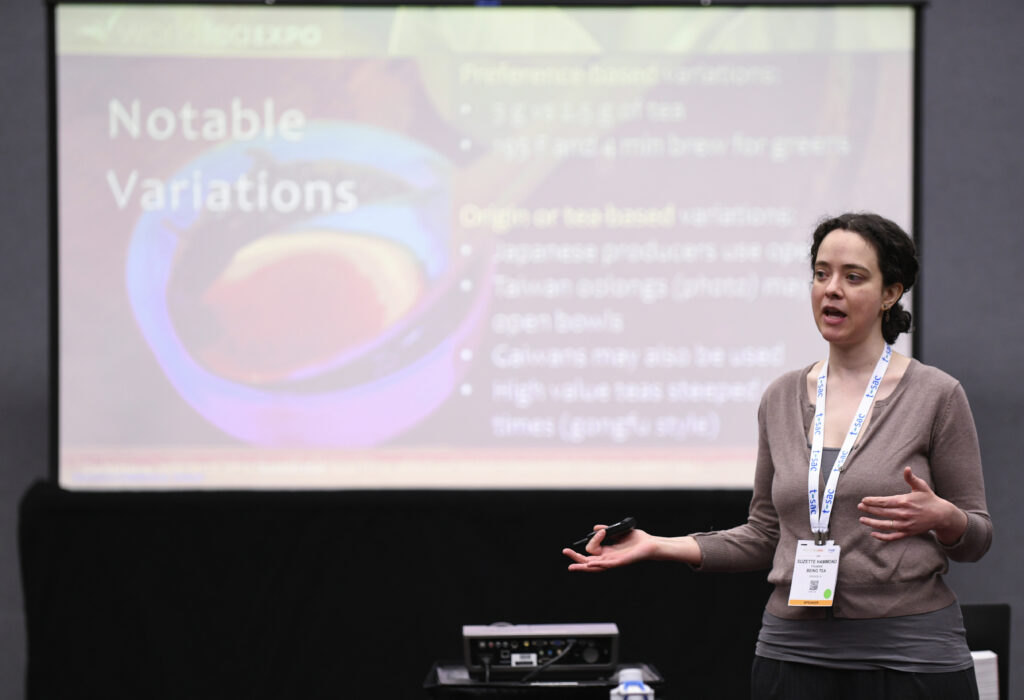Education program supports tea professionals as teachers
You have been called to tea — as a tea sommelier, a blender, a farmer, or a small business owner.
You are an expert in your field. And because of that expertise, people want to learn from you.
Part of being a tea professional is imparting your knowledge to others, teaching the ways of tea, the history, the benefits, and the beauty of this ancient plant.
More than just being called to tea, you are called to educate about tea.
Are you ready to teach?
Caption: Suzette Hammond, founder of Chicago-based Being Tea tea school prepares tea for an online class.
Listen to the interview
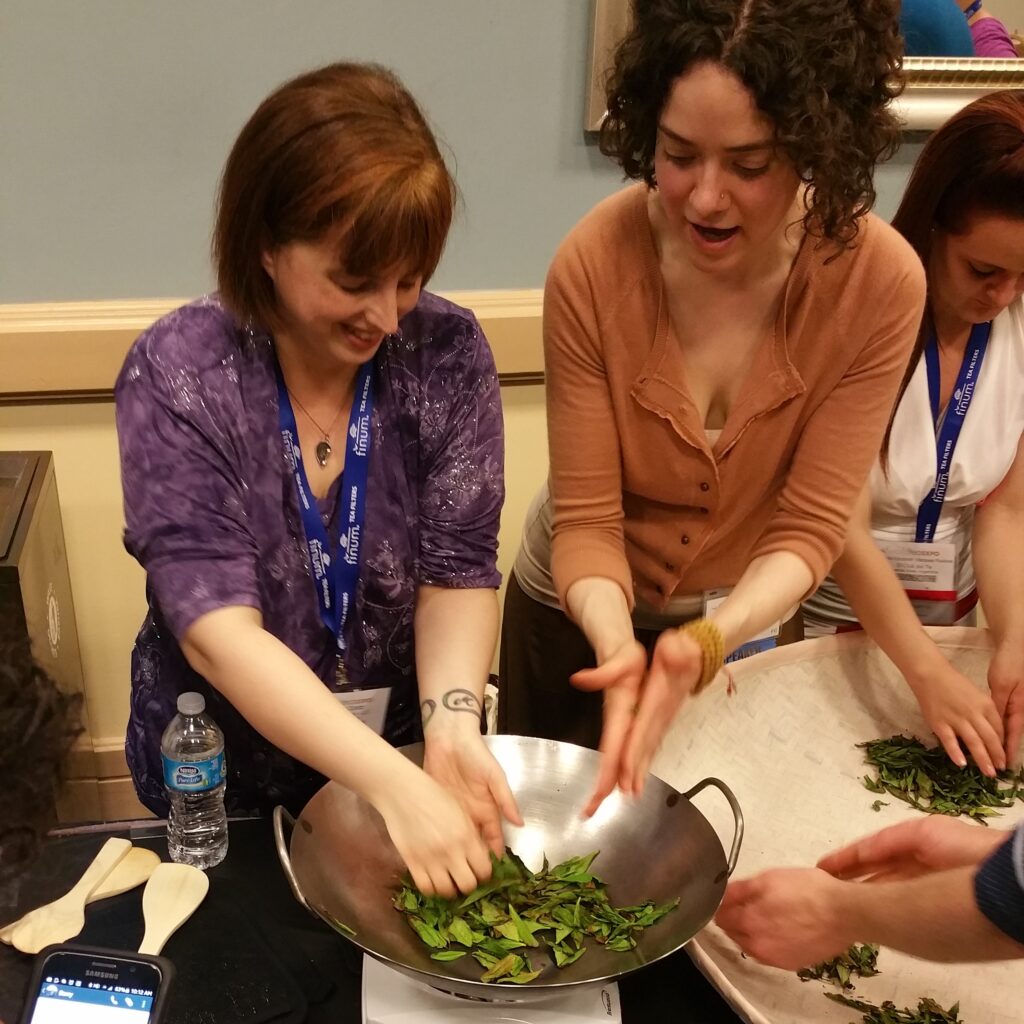
An Education Program Designed for Tea Professionals
A tea educator with more than 20 years of experience, Suzette Hammond — or Sooz — recognized a gap in tea training. Tea professionals, she realized, are not taught how to teach about tea, how to deliver meaningful programs in groups of all sizes, online or in person.
To fill that gap in the industry, she developed an eight-month professional teacher training course for tea professionals, offered through her Chicago-based tea school, Being Tea.
A conversation with Being Tea’s Sooz Hammond, tea educator
By Jessica Natale Woollard
Jessica: Can you tell us about a few people who’ve taken your program and how they’re using what they’ve learned to improve their tea business?
Sooz Hammond: It’s really special to see how folks are using this in very unique ways.
One of our students, Nicole Wilson, the founder of Tea for Me Please, recently published a tea recipe book. When she was developing that book, she told me she poured a lot of what she learned in Being Tea’s teacher-training program into that book in terms of her approach to teaching people how to make the recipes. She thought about accessibility, language, and structure. That was really inspiring cause to me because as a teacher, my framework is classes and workshops. But I realized that that’s not everyone’s format. Nicole’s main format is writing. It was amazing to see how she translated what she learned in the Being Tea program into writing.
See: The Tea Recipe Book by Nicole Wilson
Jessica: You mentioned small business owners are a large percentage of your students. Can you share the story of a small business owner who’s taken the teacher-training program?
Sooz: One student who comes to mind is Tehmeena Manji, who goes by the name Tea, which is really cute. She’s the founder of Muthaiga Tea Company in Nairobi, Kenya. She came to the program as a certified tea sommelier, one of the first in East Africa. She has a really deep tea background, a lot of it in field research and understanding tea cultivation.
I remember her saying to me that when she was getting started, it hadn’t occurred to her how important education would be, how in order to actually sell the tea, to move the tea, she would have to train people.
During the program, I’d see her make these connections. Because we’d have a session together, and then she’d train people through her work. She was applying her learning in real-time, and she was excited about that.
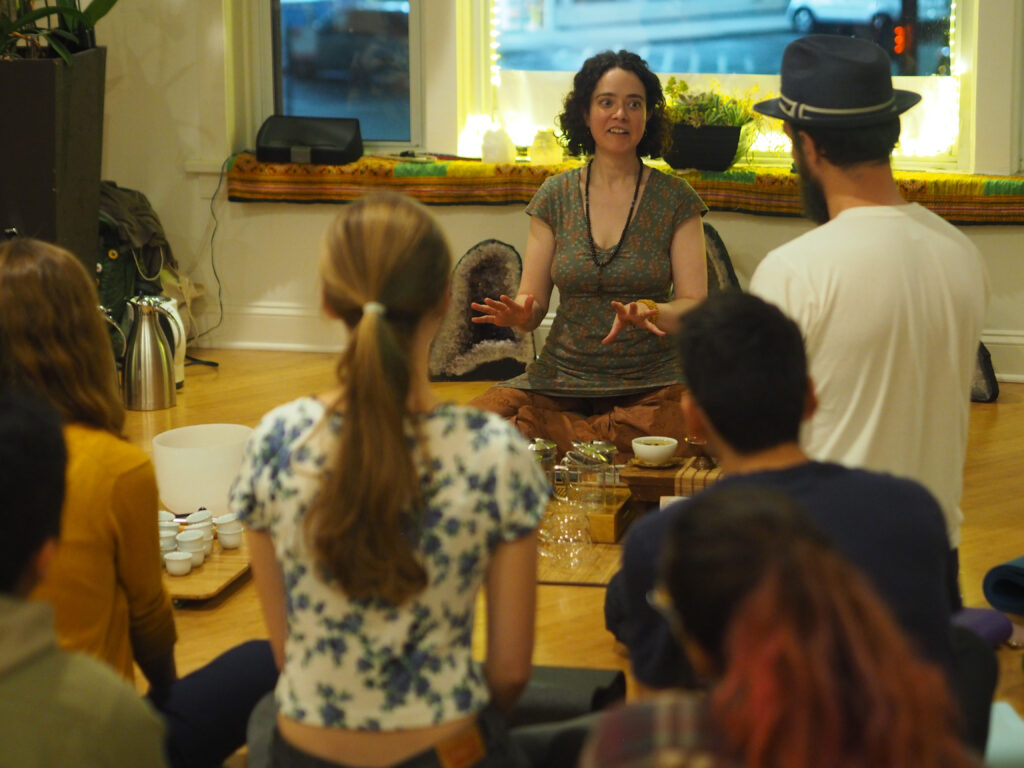
Jessica: You spent part of your career training tea professionals in a business setting. From that experience, you’ve seen all the different ways teaching moments can happen — one-on-one in a shop, in front of a group at a conference, in an online event, or even perhaps a media interview. How does the curriculum of Being Tea’s teacher training program reflect the different environments where education happens?
Sooz: One of the questions I’ve had from people who are interested in the teacher-training program is, what percentage of this program focuses on technical skills and logistics, and what percentage focuses on soft skills?
A very large percentage of this program is soft skills, in other words how we relate person to person. Even the logistical and technical component of the program, like classroom management, is taught through the lens of how we relate to people.
The first part of the program looks at what calls you to this work. We examine what we think a teacher should be, and what we think an educator should be.
Then we get into adult learning theory, experiential learning theory, and the building blocks of creating an engaging workshop or engaged program with somebody. We look at the environment, the room, the space, what happens when people step into that room? How do we handle the energy in the room as we’re teaching?
Then in the middle of the program, we transition to looking at some of those more technical and logistical components like time and lesson plan development. We look at logistics, and how you scale up or scale down a program depending on the groups that you have. We look at teaching online, teaching for different sized audiences and spaces. It all fits in with what we’ve been covering so far, keeping in mind the best ways that people are going to learn a very sensory subject like tea.
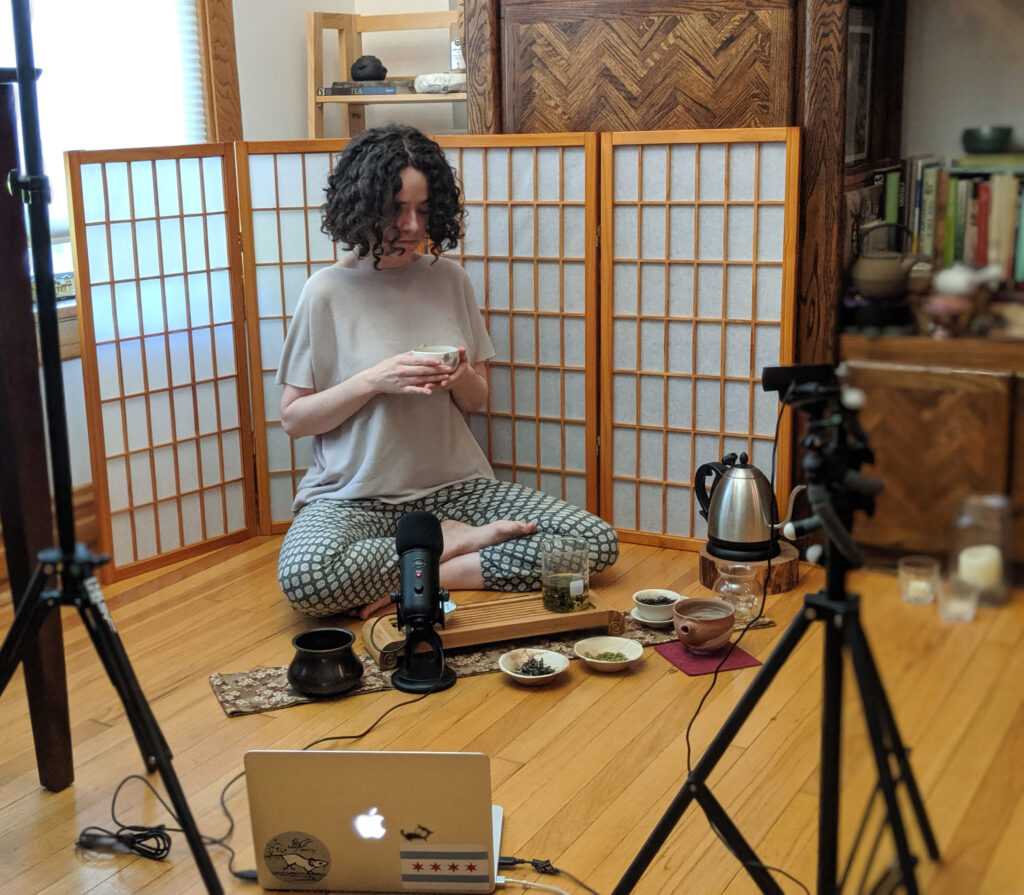
Sooz: One of my favorite tea people in the whole world is Donna Fellman who developed the World Tea Academy. She also developed a large portion of the program that’s taught for the Specialty Tea Institute. She’s retired now from teaching.
She’s someone who had a background in education herself, and I really loved the presence that she had in front of people. She was so comfortable and at ease in that moment in front of a group of people. It didn’t seem that there was a boundary between her and the classroom.
When you’re teaching in front of a large group, you wonder, how do you maintain a sense of intimacy? She could. I loved watching her in front of a group. It made me realize that you can bring that same quality of self to a small experience and to a big one. I think of Donna a lot when I’m teaching.
Jessica: Self-reflection is an essential component of self-improvement, which is why reflections are part of the Being Tea teacher-training program. Sooz, you mentioned your self-reflection on one-on-one interactions helped shift your view of those very private moments in teaching. Those moments are very private and very powerful.
Sooz: I initially didn’t think I would do much private teaching through Being Tea. But then when I looked at a lot of my own learning background, I realized I really do enjoy one-on-one work. I’ve had private yoga classes, private acupuncture, and private movement therapy. I really enjoy it when it’s just me and the teacher; I learn in a different way.
Now I do versions of the teacher-training program where I am working with somebody one-on-one.
So I ask my students to consider that. Reflect on your own experience of when you have benefitted from a one-on-one relationship with somebody who’s teaching you something. Consider how you can channel it into your experience when you’re sharing tea with somebody.
Learn more about Being Tea’s teacher training program.
This interview has been edited and condensed.
Shhttps://tea-biz.com/2022/06/10/teaching-tea-teachers/are this post with your colleagues.
Sign up and receive Tea Biz weekly in your inbox.
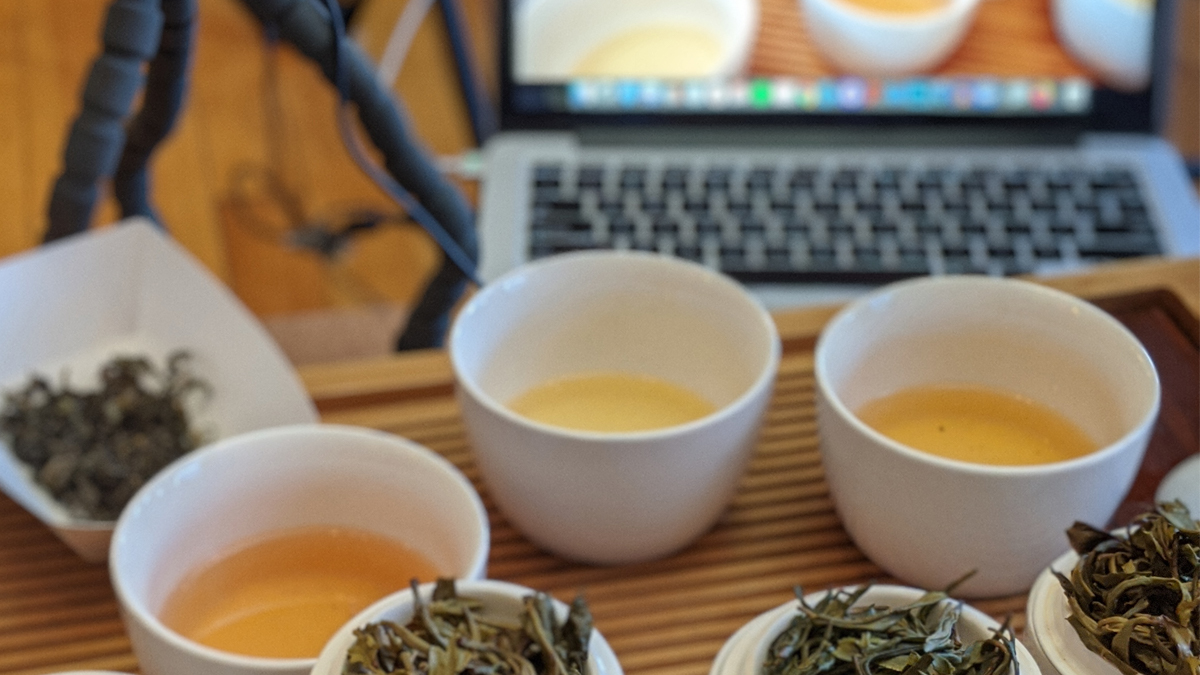
Never miss an episode
Subscribe wherever you enjoy podcasts:

